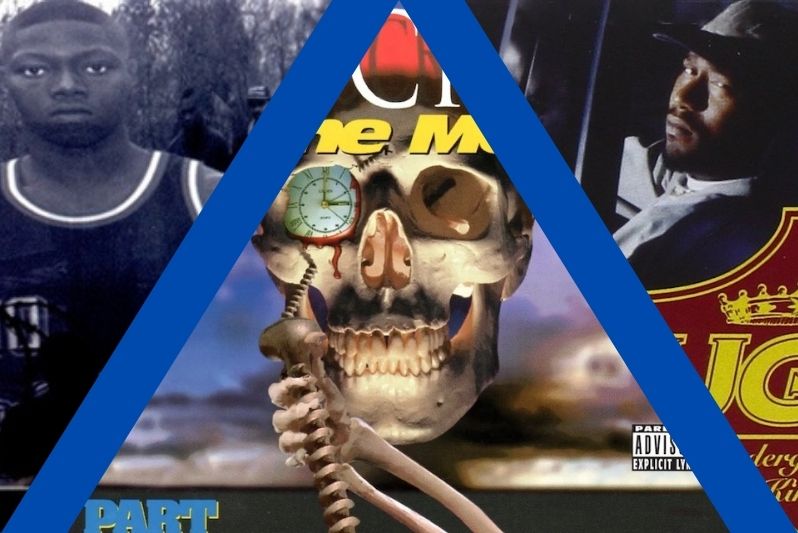How Houston am I? I spent my earliest years in a shotgun-style house off Wallisville Road and Wayside Drive, in the working-class Mexican-American neighborhood of Denver Harbor. Just across the Union Pacific railroad tracks lay the famous—and sometimes infamous—Fifth Ward. It was there, in earshot of that cultural epicenter, that I first witnessed the emergence of Houston’s biggest cultural export: hip-hop. My initiation came by way of a cassette of Grip It! On That Other Level by the then–Ghetto Boys, sparking a lifelong love for H-Town hip-hop.
I won’t claim to be an expert, but I am unapologetically a fan—and I was a lifelong Houstonian until I left for the San Francisco Bay Area in 2021. Every day since, I’ve missed Houston’s unmatched diversity, affordability, its unapologetic commitment to cultural roots, its summers and its superior Mexican food. But above all, I miss the music. Houston’s reputation as a hip-hop powerhouse was decades in the making: from the earliest days of Rap-A-Lot Records to the city’s mid-2000s chart-topping explosion and the forward-thinking wave of artists shaping it now. That distinctive sound—the low-slung bass, slowed-down hooks and uncut narratives—sets Houston apart from every other rap city.
Plenty of Houston rappers have dropped albums over the years, but only a select few truly define what makes H-Town special. Here, you’ll find the list that captures the genre’s evolution: from its gritty foundations to the crossover smashes that brought national fame, all the way to those forward-pushing forces dominating culture now.
Houston’s hip-hop lineage includes a host of icons who’ve shaped the city’s identity in vital ways, with artists like Fat Pat, Slim Thug, Trae tha Truth and Mike Jones among those making records that still resonate.
Some not on the list, but which are essential include Fat Pat’s Ghetto Dreams (1998), which stands as an indelible snapshot of ’90s Southside culture, capturing not just the struggle and hustle but a strong sense of community spirit—especially on tracks like “Ghetto Dreams” and “Tops Drop.” Slim Thug’s Already Platinum (2005), meanwhile, arrived at a turning point when Houston was breaking into the national spotlight, pairing the city’s slow-rolling aesthetic with polished club production from the Neptunes. In Losing Composure (2003), Trae tha Truth channeled the harsh realities of Houston’s streets, baring his soul over each confessional track and solidifying himself as a voice that spoke directly to the city’s underbelly. Long before melodic rap became standard practice, Big Moe’s City of Syrup (2000) showcased his smooth fusion of R&B-styled hooks and chopped-and-screwed flows, serving as a tribute to H-Town’s purple-drank culture. Born in Houston, Christian rapper Lecrae was introduced to many people through being referenced by Kendrick Lamar in “Watch the Party Die,” but he’s had an award-winning career topped by Anomaly (2018). Finally, Mike Jones soared onto the national stage with Who Is Mike Jones? (2005)—propped up by the infectious “Still Tippin’” and the memorable marketing gimmick of sharing his phone number—proving that H-Town’s local mixtape culture could dominate both radio airwaves and pop consciousness.
Finally, it must be said that a variety of names, including Lil Troy, Street Military, Ganksta N-I-P, Yungstar, Devin the Dude, South Park Mexican, ESG, Hawk, the Botany Boyz, Big Pokey, DJ DMD, Baby Bash, Lil O, Kirko Bangz and K-Rino are also notable names in Houston rap history. Maxo Kream, OMB Bloodbath, Don Toliver, Monaleo, That Mexican OT, Lizzo and KenTheMan are among the contemporary artists creating their own history.
This guide to some of the best Houston rap albums—presented in chronological order—shows just how vital and varied Houston’s rap movement can be, reminding listeners that each artist carved out a distinct corner of the city’s storied sound. Let’s dive in.
Note: When you buy something through our affiliate links, Treble receives a commission. All albums we cover are chosen by our editors and contributors.
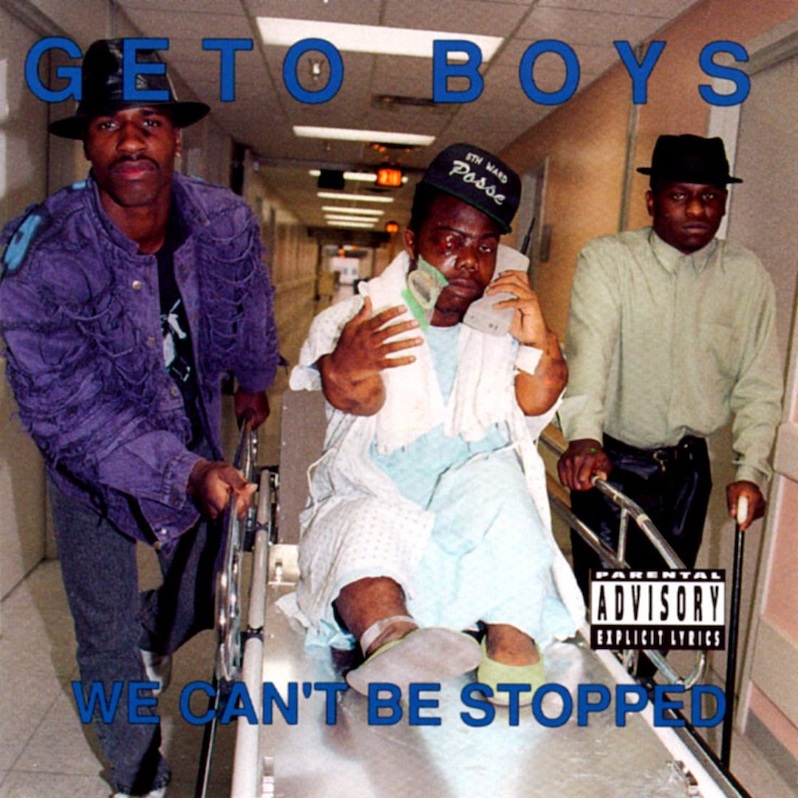
Geto Boys – We Can’t Be Stopped (1991)
Strong arguments can be made for Grip It! On That Other Level (1989) or the Rick Rubin repackage of that release (1990’s The Geto Boys) deserving of top honors. From sampling “Sweet Home Alabama” to pioneering horrorcore, it is impossible to overstate the impact of Grip It!’s mix of violent imagery, political posturing (such as coming to the defense of the beleaguered Public Enemy in “No Sell Out”) and raw yarns in 1989. But it was We Can’t Be Stopped that introduced the rest of the country to the edgy reality of H-Town’s Fifth Ward, and set the tone for Southern rap as a whole.
Even now, you can still feel the ripple effect of the Geto Boys’ unfiltered style in almost every facet of Houston’s music scene. We Can’t Be Stopped set the bar, and its most famous song, “Mind Playing Tricks on Me,” became the unofficial anthem of Houston in the early 1990s. Even still, it remains a mainstay on Houston radio, at parties and barbeques.
Beyond the iconic cover art and the collective’s raw dynamic, the album’s pinnacle is easily “Mind Playing Tricks on Me.” Much has been written about a track that took Fifth Ward narratives to a national stage. Its moody beat and Scarface’s introspective lyrics about paranoia stood out in a genre often defined by bravado. Other songs like “I’m Not a Gentleman” and “Chuckie” leaned into the group’s darker, horrorcore-tinged style, marking We Can’t Be Stopped as a watershed moment where H-Town’s no-holds-barred accounts resonated across the country.
Listen: Spotify
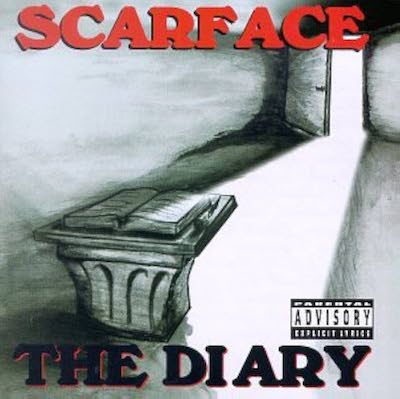
Scarface – The Diary (1994)
The album ends up quite high on many lists for good reason. It is a classic. But even classics need to make room after 30 years.
If you only recently saw Scarface at his NPR Tiny Desk Concert or missed his rise, The Diary is where you start. When Scarface stepped out for his solo work, he did more than distance himself from the group that made him famous; he crafted a timeless piece of hip-hop history. The Diary is equal parts reflective and menacing, weaving cinematic street tales with introspective depth. Scarface takes you right inside the mind of a man grappling with life’s toughest realities. He’s at turns rough, at others unguarded, and the result is a lyrical tour de force that a generation of rappers (in Houston and beyond) would look to for inspiration.
While the entire project brims with Scarface’s signature intensity, “I Seen a Man Die” was the cut that turned many casual listeners into devoted fans. Its haunting production and reflection on mortality showed hip-hop could be just as contemplative as it was confrontational. Tracks like “Hand of the Dead Body” also demonstrated Scarface’s ability to go bar-for-bar with rap heavyweights, solidifying his place as one of the genre’s most respected voices.
Listen: Spotify
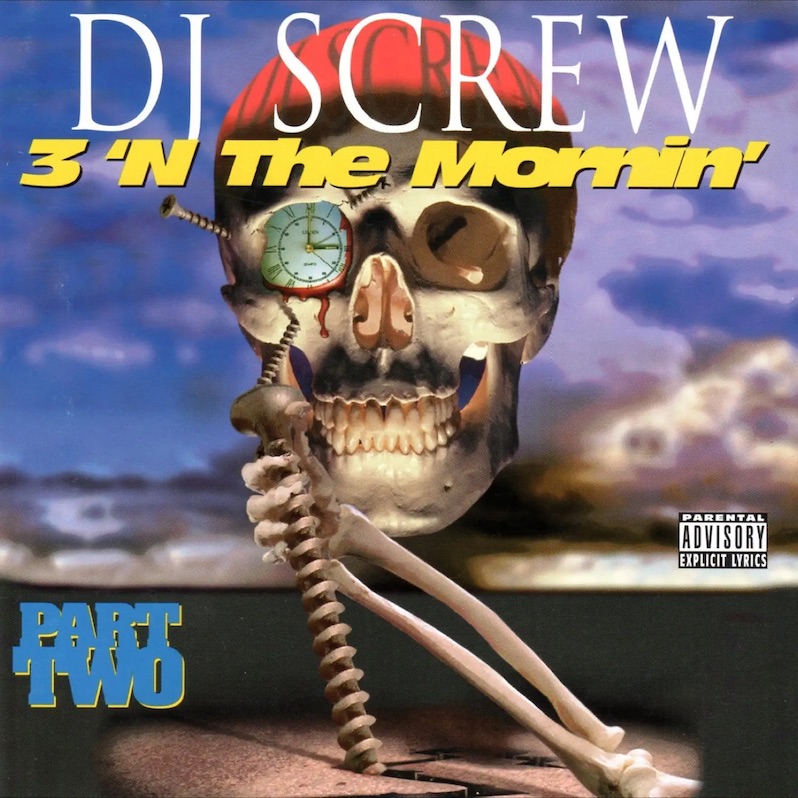
DJ Screw – 3 ‘N the Mornin’ Pt. 2 (1996)
Most music lovers have heard of chopped and screwed, that way of mixing hip-hop that was born in Houston. Well, there have been many variants, but there’s only one DJ Screw’s style of chopped and screwed. While Screw created countless legendary mixtapes, 3 ‘N the Mornin’ Pt. 2 stands as a greatest showcase of Screw’s signature style, slowing tracks down to a hypnotic crawl and slicing up vocals in a way that turns songs into new experiences. His influence can’t be overstated in Houston or in hip-hop. DJ Screw didn’t just alter the tempo, he transformed hip-hop culture. Even decades later, Screw’s era-defining sound is often copied.
A hallmark of this release is its collection of reworked Southern staples that DJ Screw transformed into hypnotic, slowed-down anthems. Cuts like “Swangin’ and Bangin’” (with E.S.G.) and “Pimp Tha Pen” (with Lil Keke) highlight how Screw could elevate already-popular tracks into a dreamlike haze. His signature chopping style—subtle record scratches and skipping vocals—turns each remix into an immersive experience, solidifying this tape as an essential introduction to the Screwed sound.
Listen: Spotify
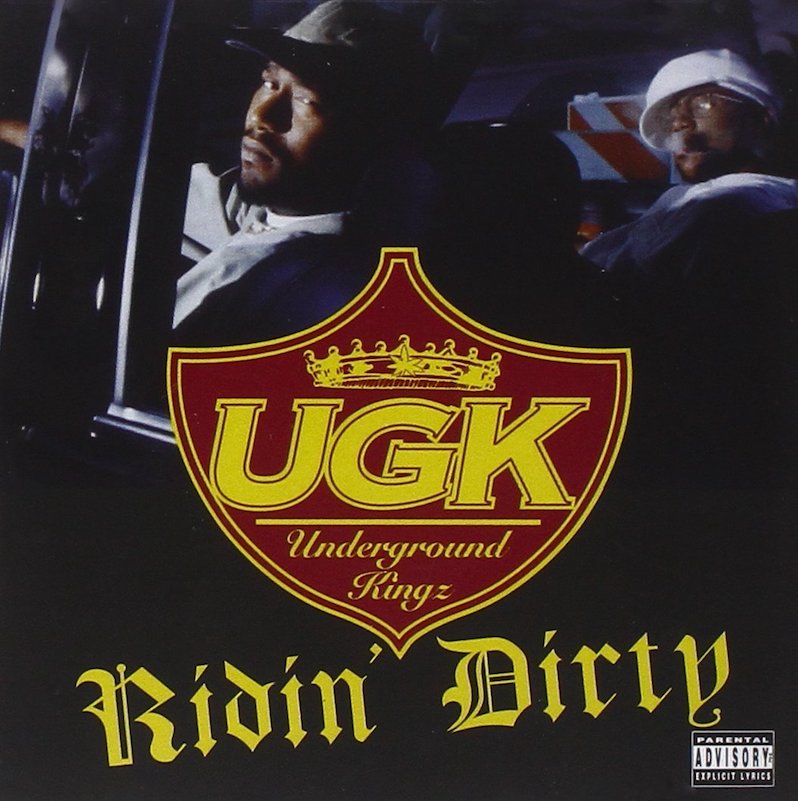
UGK – Ridin’ Dirty (1996)
Technically, UGK’s Bun B and Pimp C are from Port Arthur, but Houston will always claim them as its own. And Ridin’ Dirty is often cited as UGK’s defining masterpiece, a record that marries tight Southern production with provocative, real-life narratives. Pimp C’s slow-rolling, funk-infused beats and Bun B’s masterful rhyme schemes laid the template for what detractors once mocked as country rap. UGK fused it into an unmistakably Southern blend of laid-back rhymes and bold narratives. From the underground to mainstream channels, few albums have done more to shape the entire Southern rap sound.
When fans talk about Ridin’ Dirty, they often mention “One Day,” a somber reflection on life’s fragility that utilizes a sample of the Isley Brothers’ “Ain’t I Been Good To You” slowed down. Singer Ronnie Spencer was asked to mimic Ronald Isley, and did it so well that he’d do it countless times later. Much writing has been dedicated to deconstructing “One Day” because of its resonance. Elsewhere, the strength and funk of “Murder” underlined UGK’s knack for mixing hustler tales with a head-nodding groove, while “Diamonds & Wood” perfected the art of rhyme over a slow, rolling bassline. These tracks, in particular, encapsulate Bun B and Pimp C’s chemistry, which makes the record sound at once wild and polished, timeless and region-defining.
Listen/Buy: Spotify | Amazon (vinyl)
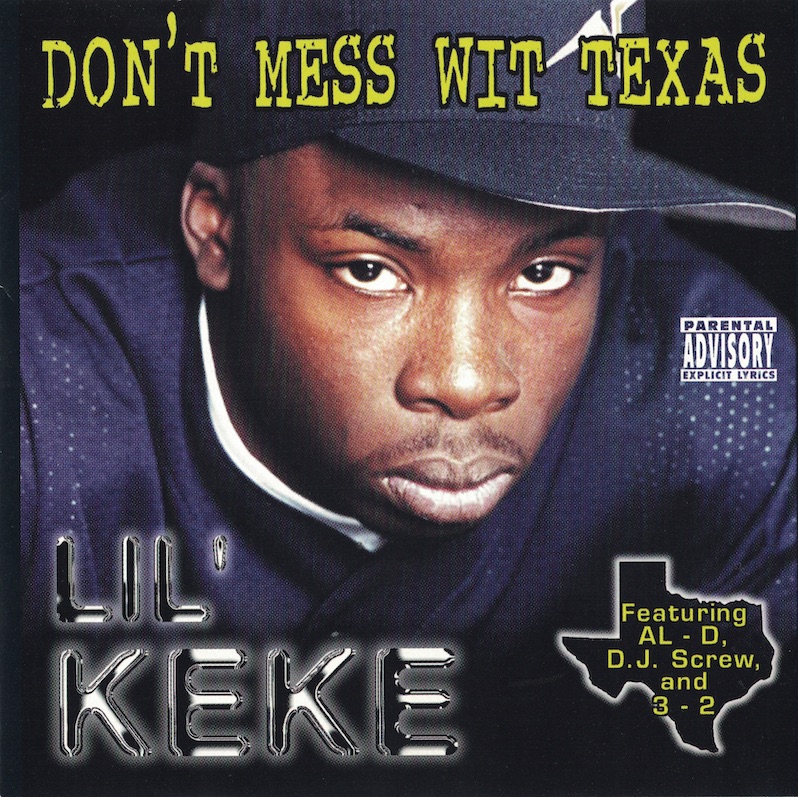
Lil Keke – Don’t Mess Wit Texas (1997)
In the mid-to-late 90s, Lil Keke’s Don’t Mess Wit Texas acted as the album for anyone curious about Houston’s street sensibilities and obsession with local culture and basslines. As a key member of the Screwed Up Click, Keke’s effortless flow brought to life anthems like “Southside,” a track that encapsulates the city’s love for candy-painted slabs, neon-lit car shows and Sunday cruising rituals. This album cemented Lil Keke’s place as one of the most respected voices to emerge under DJ Screw’s iconic umbrella.
For many Houstonians, “Southside” remains the ultimate party-starter, a track that rallied the entire city around its love for the city. “Bounce & Turn” also showcased Lil Keke’s ability to ride a beat with effortless swagger. These songs became instant classics, bumping from many a car stereo and backyard cookout south of I-10. These songs still get played when locals want to channel that pure 1990s H-Town energy.
Listen: Spotify
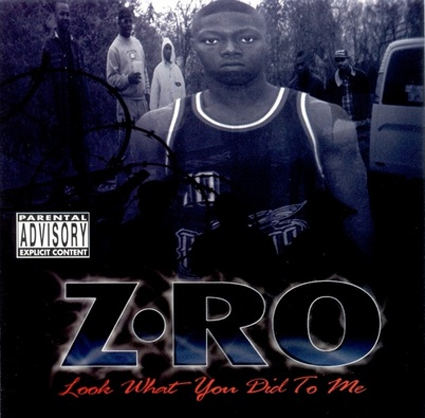
Z-Ro – Look What You Did to Me (1998)
The Mo City Don’s influence far outstretched his sales, and he’d probably have it no other way. Z-Ro is a master of blending emotion with street-savvy lyricism. His debut album, Look What You Did to Me, offered audiences the unfiltered version of one of Houston’s most consistent voices. Critics in the past likened Z-Ro to Tupac for his honesty and vulnerability, and this record offers the portrait of a man who refuses to let his environment break him. On songs like “Lord Tell Me Why” and “Ghetto Crisis,” Z-Ro lays bare his frustrations. Yet it’s those melodic hooks that stay stuck in your head.
From the opening notes of the title track, Z-Ro’s raw vulnerability sets this album apart. “Life Story” delves deeper into his personal struggles, letting listeners glimpse the pain and triumph that shaped him into the Mo City Don. Those heartfelt confessionals and hooks allowed Z-Ro to forge a sound that resonated well beyond Houston, while staying true to the city’s distinctive style and slowed-down swagger.
Listen: Spotify
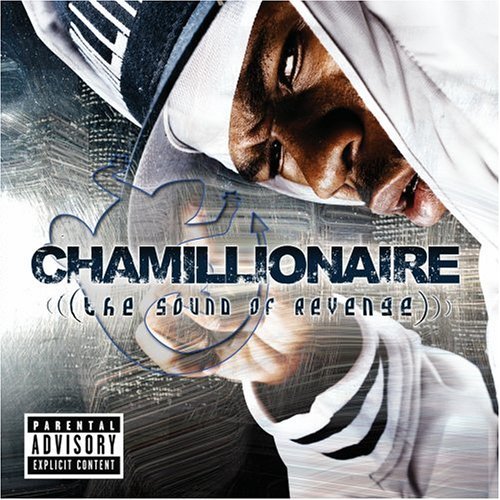
Chamillionaire – The Sound of Revenge (2005)
In many “best of Houston” conversations, Get Ya Mind Correct (2002) by Chamillionaire and Paul Wall is cited as a cult favorite. However, Chamillionaire’s debut proved that serious lyricism and radio-friendly hooks could go hand in hand. The Sound of Revenge lands in this top 10 because it was a breakthrough. It gave us “Ridin’,” an inescapable single that went on to win a Grammy. Beyond that, Cham’s articulate flow and knack for a catchy chorus made this one of the most polished albums to come out of Houston at the time. With national charts conquered and awards in hand, it became evident that the city had a new movement and firmly planted its flag in mainstream hip-hop.
Of course, “Ridin’” is the track that immortalized Chamillionaire in pop culture, earning him airplay far beyond the South. Yet deeper cuts like “Turn It Up” featuring Lil’ Flip showed his knack for balancing radio accessibility with sharp lyricism. Throughout the project, Chamillionaire’s flow glides effortlessly over diverse production styles, proving Houston rap could be polished, hook-driven, and still carry lyrical weight.
Listen: Spotify
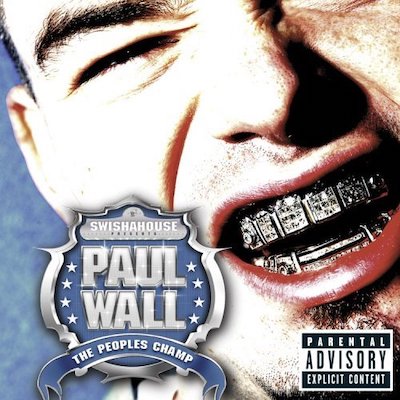
Paul Wall – The Peoples Champ (2005)
The mid-’00s, particularly 2005, was a second golden era for Houston hip-hop, with many classic albums coming out, and no one quite embodied Houston’s come-up spirit that year like Paul Wall. The Peoples Champ was as celebratory as it was groundbreaking, with diamond-encrusted grills, trunk-shaking anthems and that signature flow. Paul Wall was unlike his contemporaries of the period, either on his label Swishahouse or in Houston. He didn’t cultivate a tough-guy or gangster image. Instead, his friendly, approachable persona made him an immediate fan favorite. One could critique this embrace as the novelty of a white Houston rapper, but a deeper context is how artfully Paul Wall presented himself. The album title says it all—he was the amiable guy next door, just with a microphone, a slab and a diamond grill.
If you cruised anywhere in Houston in 2005, “Sittin’ Sidewayz” was unavoidable. It still is. That bassline and hook are timeless. “They Don’t Know” featuring UGK’s Bun B kept that energy rolling, reinforcing Paul Wall’s laid-back persona as the city’s new favorite spokesman. Combined with the viral success of “Internet Goin’ Nutz” (a line he still drops into lyrics from time to time) this album hit the sweet spot between Southern street banger and crossover success, elevating Paul Wall as a face of the H-Town newer generation of that time.
Listen: Spotify
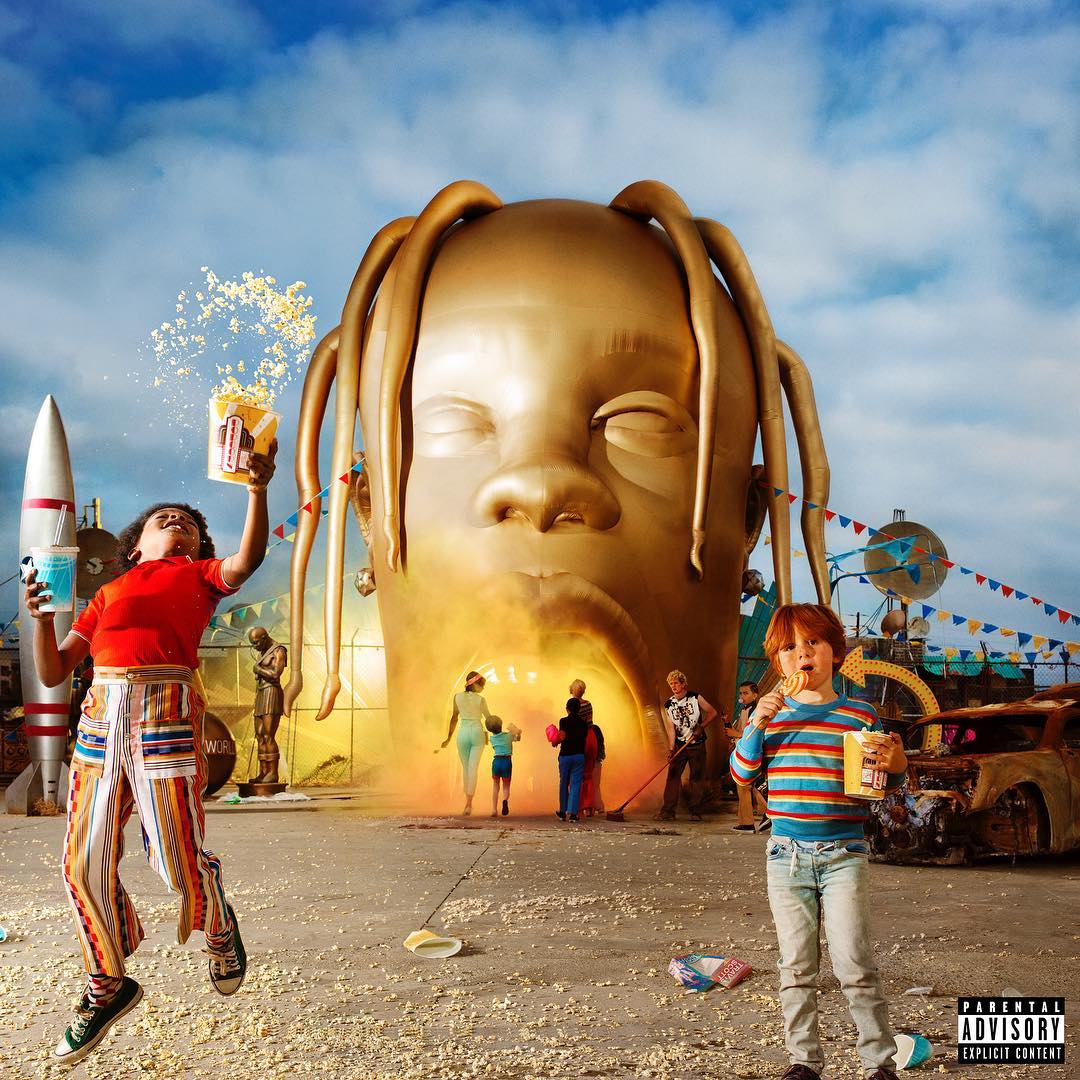
Travis Scott – Astroworld (2018)
Many people debate whether the Houston-born Scott should be on a top ten list of the city at all, but his influence on the post-Geto Boys generation and the long shadow he’s cast over music, fashion and more cannot be denied.
Named after a defunct theme park that used to delight Houston’s youth—as well as their parents, who could drop them off there for the day—Astroworld is a psychedelic tribute to the city that shaped him. While the sound is leagues away from the older, more classic Houston style, the album still owes plenty to the city’s heritage of bass-heavy beats and moody atmospherics. Travis’ forward-thinking production, star-studded features (Kid Cudi, Swae Lee, 21 Savage, The Weeknd, Frank Ocean and Gunna among them), and imaginative songwriting brought new eyes and ears to Houston, reminding everyone that H-Town isn’t just about nostalgia; it’s about forging the future, too.
The album’s centerpiece is arguably “SICKO MODE,” a multi-section epic that fuses multiple beats into a chaotic thrill ride. Other standouts like “Stargazing” and “Stop Trying to Be God” drive home the record’s trippy, otherworldly vibe. Travis Scott is undeniably a weird, creative guy, and he’s clearly unmoored by tradition. While the sound might be a departure from classic Houston rap, Scott manages to insert subtle nods to the city’s chopped-and-screwed tradition, tying Astroworld back to its cultural roots, all as he pushes hip-hop into new frontiers.
Listen/Buy: Spotify | Turnable Lab (vinyl)
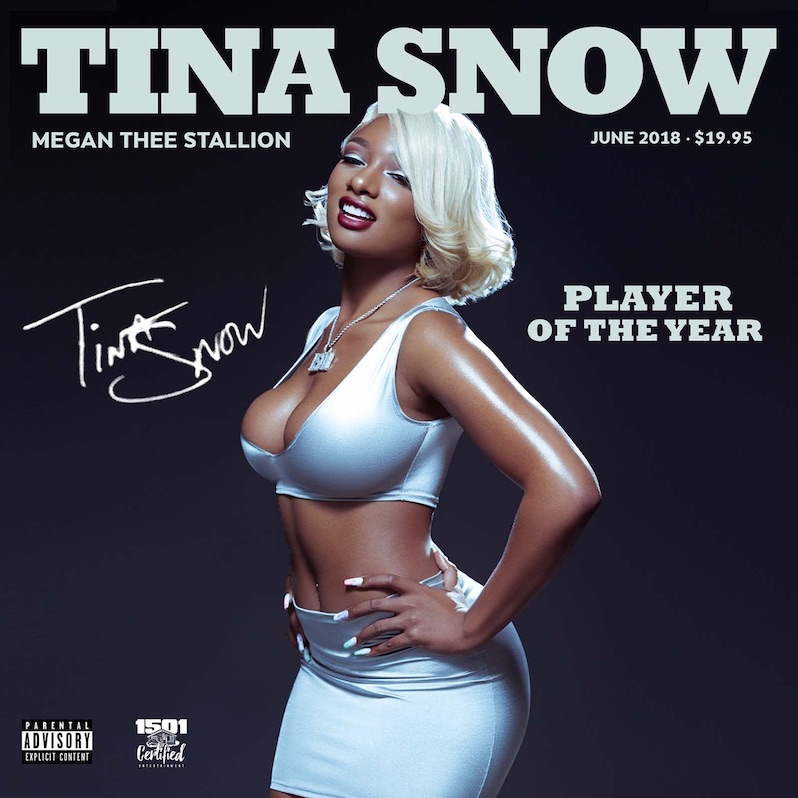
Megan Thee Stallion – Tina Snow (2018)
Today, Megan Thee Stallion is considered a pop superstar, and her breakthrough mixtape, Tina Snow, is a testament to her ferocious flow, unapologetic lyrics and ear for incredible beats. Named in homage to Pimp C’s alter ego, “Tony Snow,” this project marries old-school H-Town bravado with modern trap production—creating anthems that speak to women’s empowerment, sexual liberation and overall boss-level confidence.
Some may reject a relatively new album, compared to many others here, for being so high on the list. For that, you are (respectfully) wrong. It is crucial to remember the context. 2018 was a time flooded with melodic rap, Tina Snow brought Houston’s beloved slow-rolling vibe and blended it with Megan’s high-octane energy. In that regard, this album successfully bridges the gap between the classic S.U.C. ethos and a new wave of viral, chart-topping stardom. It laid the groundwork for her eventual global takeover.
“Big Ole Freak” put Megan on the map for a good reason: it is the showstopper, highlighting Megan’s remarkable ability to ride a beat with adults-only wit and outstanding wordplay. “Cocky AF” amplifies her brash persona and makes her as Houston’s new rap heavyweight. Tina Snow reminds the world that Houston’s female voices are equally vital to the city’s rap tapestry
Listen: Spotify
Treble is supported by its patrons. Become a member of our Patreon, get access to subscriber benefits, and help an independent media outlet continue delivering articles like these.
This post was originally published on this site be sure to check out more of their content.



